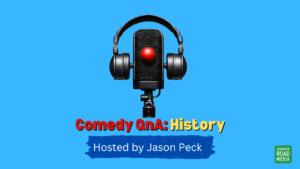“Speeches fail because they focus on the speaker not on the audience” – Phillip Khan-Panni
In the run up to the International Speech Contest Division B put on a public speaking seminar with Phillip Khan-Panni, former three-time U.K. & Ireland Public Speaking Champion, silver medallist in the World Championships and also former member of my home club Grosvenor Square Speakers.
It was great to be at an event such as this especially since Phillip has competed in so many contests and has also been General Evaluator at my club Grosvenor Sq Speakers in the past.
He’s got a very resonant and fruity voice. When he GE’d for us, he inspired me to write a post about vocal tips drawn from my experience as a professional actor, but I didn’t seem to get many readers interested so I never wrote any more. (If you’d like me to, let me know in the comments section).
From the workshop, I had heard much of the content before, from different speakers and in different ways. But I think it’s good to have that information reiterated and reaffirmed.
He opened with a question “why make a speech?” After some of us gave our responses he suggested that it’s to make a change.
More specifically…
To change your audience’s thinking, to change their attitude and to change their behaviour; a valuable insight for anybody competing in the International Speech Contest.
It has to be said that these are quite lofty aspirations to have, but I don’t think that they’re completely outside the realm of possibility. As he reminded us, sometimes all it takes is one speech that can not only change your audience’s perception, but also change your life.
Here are some examples of what he means…
*Barack Obama made a significant keynote speech in 2004 during John Kerry’s election campaign that put him firmly on the political map.
*Prior to the second Gulf War Lt. Col. Tim Collins made an impromptu speech, transcribed by a reporter, that brought him renown.
*Tory leader hopeful gave a poor speech David Davis, whereas David Cameron gave a great one and became the leader of the party.
Certainly food for thought.
In two and a half hours he covered a lot of ground and gave us his “18 Essentials of Public Speaking” at the end. Even though he pointed out that the average person can only retain 7.
That said we had blank areas to fill in on our notes, which he helped guide us through to completion. Lots of useful pointers to remember for people competing in the International Speech Contest.
The quote that I opened this post with has been mentioned before on the blog, but is absolutely worth repeating. You have to find a way to build a connection with your audience right from the outset.
Audience members will generally think about a speech in terms of how it benefits them; “what’s in it for me?” he told us how beneficial it was to establish that we are on the same page as our audience right from the beginning, to do this he suggested confirming something that the audience already knows about your subject.
As a broad example of my own, if you were talking about space travel you could confirm that the audience already knows that we landed on the moon, before you move on.
The more I reflect on the workshop the more I can’t help feeling that two hours wasn’t enough for the content that he was giving us. It was a little overwhelming at times.
I have no doubt that he had some great things to share, but it felt a little rushed trying to fit everything in.
I think what may have helped us was to give us less, but spend more detailed time on those fewer points. It was all great stuff, but there was a lot to take in; from the props and magic trick in the first half, to the brief analysis of a Barack Obama speech to the “18 Essentials of Public Speaking” handout.
One of the key elements that Phillip did mention was that the audience needs to enjoy your speech and YOU’VE got to enjoy giving it.
That is such an important point, especially in the International Speech Contest where you have to deliver a speech more than once. In those situations it’s easier to get locked in a familiar pattern of delivery and lose your sense of fun and enjoyment.
Even when I gave my speech last year and I spoke about the loss of my father I still looked for the enjoyment of my speech as a whole. That’s not meant to sound disingenuous or manipulative, but I really think you have to find a way to slightly emotionally detach yourself from stories like.
Otherwise you run the risk of turning your speech into therapy and you drag both yourself and the audience through an emotional quagmire, which is not what you want to do.
In so doing your audience may feel as if you’ve manipulated their emotions. Your job is to give a speech that can potentially change and audience’s way of think and not deliver an acting monologue.
Part of your job is to deliver a speech and get your point across to them in the best way possible. This is even more so the case in the International Speech contest where the most amount of points awarded is for speech structure. (Check out the rules here).
In terms of further building your connection with your audiencel, Phillip suggested that you should try to reach the person who is physically furthest away from you, as well as the person whom you think might is furthest away from agreeing with your argument.
This is a very useful tip and can sit right alongside the audience connection tips that I learnt from Simon Bucknall in his workshop last year and was reminded of at his Masterclass last December.
I am reminded of my recent post about being an Institutionalised Speaker which was inspired by my friend and fellow funny speaker Nick R Thomas.
Devil’s advocate time…
Is every speech that we give designed to make a change?
I think in terms of the International Speech Contest or a keynote, this is certainly a very valuable point. Most times the ones that do well are the speeches that are inspirational and laced with a healthy dose of humour.
That said the speeches we give at Toastmasters are often of a very particular type even though we have the opportunity to branch out and experiment with different thing in the Advanced Manuals for the most part there is a certain business-like quality to the speeches we give at Toastmasters.
But we are not always in a situation whereby we give speeches like this. Sometimes we are called upon to just say a few words, or deliver a talk on a famous person, like Nick does, or we have to give a Maid-of-Honour speech.
On these occasions I would argue whether our point for giving a speech is to make a change.
We should definitely have a point to make and connect with our audience, but I feel that what we want our audience to go away with is different.
If you have an opportunity to attend a workshop by Phillip Khan-Panni or see the man speak then I would highly recommend it. Sell your granny if you have to.
If you’re entering the International Speech Contest this year, or any year, you would do well to prepare yourself mentally as well as your speech writing and delivering skills. Here’s an article that talks about the mental preparation I did last year.
I would also suggest you read the following articles by my fellow bloggers:
Lisa Braithwaite – How do you know when youve nailed it?
Andrew Dlugan – Speech Evaluation
Eric Feng – 2 Questions that World Class Speakers Ask Daily
John Kinde – 12 Element of a Professional Quality Speech
Brad Montgomery – What to do when humor fails
___
Personal note: I, myself, am ineligible to compete this year as I am in the process of applying for a visa to emigrate to the U.S. As a result I may end up leaving right in the middle of the season and no longer be able to represent my club at any level.




1 comments
Author
Hey F
Thanks for pointing that out. I’ve made the amendment.
Cheers,
J